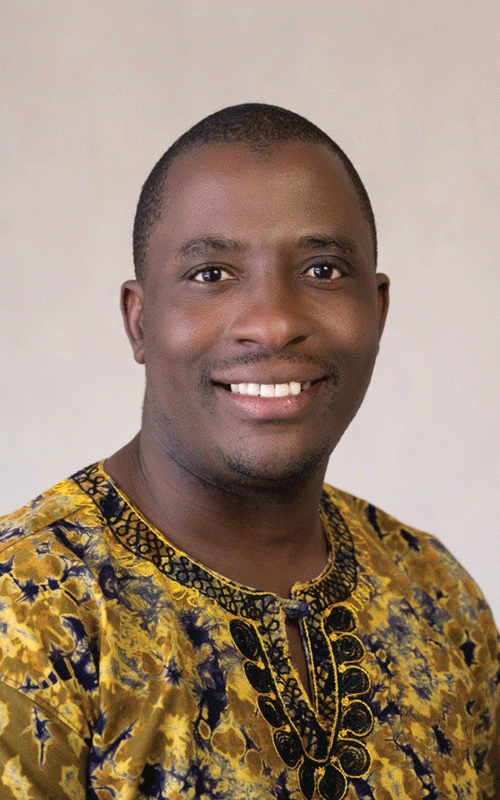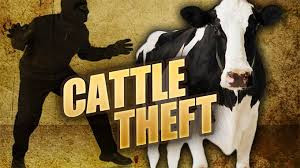
IMAGINE being a child, full of hope and promise, only to be exploited and forced into a life of slavery.
This is the harsh reality of child trafficking in Zimbabwe, a country where the vulnerability of its young citizens is exploited by traffickers who prey on their innocence.
Zororai Nkomo, a journalist, lawyer and human rights specialist, is sounding the alarm, highlighting the urgent need for change to protect children from the vagaries of modern-day slavery.
Nkomo’s background as a scribe and lawyer has given him a unique perspective on child trafficking in the country.
His experience working in communities affected by child labour has deepened his understanding of the issue and his legal expertise has equipped him to advocate for change.
Nkomo’s multi-disciplinary background has allowed him to approach the issue of child trafficking from multiple angles, combining his journalistic insight with legal expertise to shed light on the complexities of the problem and propose effective solutions.
Nkomo spoke of the hidden dangers of trafficking.
“Child trafficking is a serious human rights violation, where traffickers commodify children for exploitation. It takes various forms such as forced labour, sexual exploitation, child marriages, forced marriages, forced begging and even domestic servitude,” he said.
- COP26 a washout? Don’t lose hope – here’s why
- Under fire Mnangagwa resorts to Mugabe tactics
- How will energy crunch transition impact transition to renewables?
- COP26 a washout? Don’t lose hope – here’s why
Keep Reading
“Poverty, lack of education and unemployment make children more vulnerable to traffickers who use deception and coercion to control them. These children are often forced to work long hours in hazardous conditions, which is robbing them of their childhood.”
Having worked as a journalist before studying law, Nkomo has been a news editor in Zimbabwe and a public prosecutor with the National Prosecuting Authority of Zimbabwe.
After his journalism career, he subsequently joined notable institutions such as the Centre for Human Rights at the University of Pretoria, the International Commission of Jurists (ICJ-Kenya) and the African Union’s Committee of Experts on the Rights and Welfare of the Child, where he focused on protection and promotion of children’s rights on the African continent.
Back home, child trafficking is often linked to rural and peri-urban areas where poverty and lack of opportunities are more prevalent.
“Children are lured by promises of better lives, only to find themselves trapped in exploitative situations. The consequences are devastating, with many children suffering physical and emotional abuse and being denied their basic rights,” Nkomo said.
He said there is need to revisit and amend the existing statutes meant to combat human trafficking.
“Zimbabwe’s Trafficking in Persons Act of 2014 is a good start, but it has significant gaps. It doesn’t clearly define child trafficking as provided in the Palermo Protocol, which Zimbabwe ratified,” he said.
“The Act conceptualises trafficking as solely a movement-based offence. This creates legal interpretation problems. Yes, movement can be part of trafficking, but trafficking can happen even without movement. Children can be exploited even in their communities.
“So the Act should be crafted in a manner which comprehensively deals with the scourge. Our Legislature can draw inspiration from South Africa and Kenya on how to craft anti-trafficking laws, which protect children from trafficking in line with international human rights instruments.
“The narrow definition of the Act makes it difficult for law enforcement agencies to prosecute traffickers and for victims to receive the protection they need, especially the more vulnerable populations such as children.”
Nkomo also explained why some cases never saw the light of the day.
“Moreover, the law focuses on movement in its definition of trafficking. This means that many cases of child trafficking go unaddressed, especially in our farming and mining communities.
“Children who are exploited within their communities or families may not be recognised as victims of trafficking, and their perpetrators may not be held accountable,” he said.
“Children are being exploited in sectors like mining and farming, and at times with family consent or directly involved. We have witnessed forced begging on the streets of Zimbabwe’s cities.
“It appears society has normalised children out of school to beg, but the reality is that these children are being exploited.”
Nkomo proposed three key changes to the law.
“There is a need to clearly define child trafficking, rather than mention it as aggravating circumstances when the offence is committed, to ensure everyone understands what it entails,” he said.
“This would help to identify victims and perpetrators more effectively and ensure that the law is enforced consistently.
“Make the law cover all forms of trafficking, regardless of whether children are moved or not. This would ensure that all victims of child trafficking receive the protection they need, regardless of the circumstances of their exploitation.”
Nkomo said protecting children should be a priority.
“Prioritise protecting children, rather than just punishing traffickers. This would involve providing support and services to victims of child trafficking, as well as addressing the root causes of vulnerability, such as poverty and lack of education,” he said.
“By adopting these changes, Zimbabwe can take a significant step towards protecting its children. The law would be more effective in identifying and prosecuting traffickers, and victims would receive the support and protection they need.
“This would help to break the chains of exploitation and ensure that every child can grow up safely and reach their full potential.
“Policymakers must take action to strengthen the Trafficking in Persons Act and ensure that it provides adequate protection for victims of child trafficking. This requires a commitment to prioritising the needs of children and addressing the complexities of child trafficking.”
Nkomo highlighted the issue of human trafficking in Zimbabwe, where victims are lured with promises of lucrative jobs in countries like Oman or the United Arab Emirates (UAE), only to be forced into slavery, denied payment and subjected to sexual exploitation.
This heinous crime thrives on the vulnerability of individuals seeking better lives.
The United Nations has sounded the alarm on human trafficking, emphasising the role of online technologies in facilitating this crime.
Traffickers exploit the internet and social media to deceive and coerce victims into forced labour or commercial sex acts.
According to the United Nations, human trafficking generates an estimated US$236 billion in annual profits, with US$169,9 billion coming from sexual exploitation and US$75,9 billion from forced labour.
Human trafficking affects millions worldwide, with 49,6 million people trapped in modern slavery, including 12 million children.
Women and girls account for 54% of those enslaved.
The International Labour Organisation and the UN Migration Agency have reported that over 40 million people were victims of modern slavery in 2018, with 71% being women and girls.
The US Department of State’s Trafficking in Persons Report in Zimbabwe noted that the southern Affrican nation is making efforts to combat human trafficking,, but still faces significant challenges.
In 2023, the country was upgraded to Tier 2 status, indicating it’s not fully meeting minimum standards for eliminating trafficking, but is making progress.
However, in 2024, Zimbabwe was downgraded to the Tier 2 Watch List, which means that although the government is making efforts, it is failing to demonstrate overall increasing efforts compared to the previous reporting period, such as amending its anti-trafficking law and criminalising all forms of trafficking.
Zimbabwe has identified trafficking victims and referred them to services after a two-year gap.
It also supported the repatriation and reintegration of victims exploited abroad. Many of them were from Oman and the UAE.
“A new National Plan of Action, 2023-2028, was finalised and implemented to combat trafficking. Six provincial task forces were established to investigate trafficking and coordinate victim services,” the report reads.
Zimbabwe’s anti-trafficking law doesn’t fully criminalise all forms of trafficking.
“There is official complicity. Reports of low-level official involvement in trafficking crimes persist,” the report read.
“Due to limited resources, the government relies heavily on NGOs [non-governmental organisations] and international organisations for victim protection services due to insufficient resources.
“The backlog of cases causes significant delays in investigations, and prosecutions remain a challenge.”
To effectively combat human trafficking, Zimbabwe needs to address these gaps, particularly in legislation, resource allocation and case backlog.
Nkomo urges that by understanding the root causes of human trafficking and working together to address them, we can make progress in protecting vulnerable individuals and promoting human rights.










